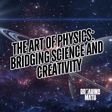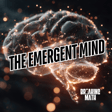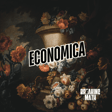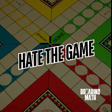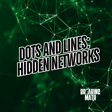Become a Creator today!Start creating today - Share your story with the world!
Start for free
00:00:00
00:00:01

In Memory of Sofia Baca, Cofounder and cohost of Breaking Math
In October of 2023, Sofia Baca passed away unexpectedly from natural causes. Sofia was one of the founders and cohosts of the Breaking Math Podcast. In this episode, host Gabriel Hesch interviews Diane Baca, mother of Sofia Baca as we talk about her passions for creativity, mathematics, science, and discovering what it means to be human.
Sofia lived an exceptional life with explosive creativity, a voracious passion for mathematics, physics, computer science, and creativity. Sofia also struggled immensely with mental health issues which included substance abuse as well as struggling for a very long time understand the source of their discontent. Sofia found great happiness in connecting with other people through teaching, tutoring, and creative expression. The podcast will continue in honor of Sofia. There are many folders of ideas that Sofia left with ideas for the show or for other projects. We will continue this show with sharing some of these ideas, but also with sharing stories of Sofia - including her ideas and her struggles in hopes that others may find solace in that they are not alone in their struggles. But also in hopes that others may find inspiration in what Sofia had to offer.
We miss you dearly, Sofia.
Sofia lived an exceptional life with explosive creativity, a voracious passion for mathematics, physics, computer science, and creativity. Sofia also struggled immensely with mental health issues which included substance abuse as well as struggling for a very long time understand the source of their discontent. Sofia found great happiness in connecting with other people through teaching, tutoring, and creative expression. The podcast will continue in honor of Sofia. There are many folders of ideas that Sofia left with ideas for the show or for other projects. We will continue this show with sharing some of these ideas, but also with sharing stories of Sofia - including her ideas and her struggles in hopes that others may find solace in that they are not alone in their struggles. But also in hopes that others may find inspiration in what Sofia had to offer.
We miss you dearly, Sofia.
Transcript
Introduction and Casino Promotions
00:00:00
Speaker
Lucky Land Casino, asking people what's the weirdest place you've gotten lucky. Lucky? In line at the deli, I guess? Haha, in my dentist's office. More than once, actually. Do I have to say? Yes, you do. In the car, before my kids PTA meeting. Really? Yes. Excuse me, what's the weirdest place you've gotten lucky? I never win and tell.
00:00:20
Speaker
Well, there you have it. You can get Lucky anywhere, playing at luckylandslots.com. Play for free right now. Are you feeling lucky? No purchase necessary. Voided by law. 18 plus terms and conditions apply. See website for details. Okay, round two. Name something that's not boring. A laundry? Ooh, a book club. Computer solitaire, huh? Oh, sorry. We were looking for Chumba Casino.
00:00:46
Speaker
That's right! ChumbaCasino.com has over a hundred casino-style games. Join today and play for free for your chance to redeem some serious prizes!
Announcement of Sofia Baca's Passing
00:01:07
Speaker
To our breaking math listeners, some of you who follow our social media profiles may be aware of the news that I'm about to share. Although many of you are not, and this will be the first time that you have heard this news. This is quite tragic news. You may wish to sit down before listening further. In early October of this last year, Sofia Baca, one of the founders and the host that you heard most often on this podcast, passed away unexpectedly.
00:01:33
Speaker
Sophia passed away from a health condition that was known to herself and her family. Nonetheless, her passing due to this condition was still quite unexpected. The news of her passing has understandably left many of her family and friends quite shaken.
00:01:48
Speaker
This is Gabriel Hesh. I, along with Sofia Baca, am one of the founders of the Breaking Math podcast. Sofia and I were friends for the greater part of the last seven years. Along with the Breaking Math podcast, Sofia was the producer of the Nerd Forensics podcast, a show hosted by her fiancee, Millicent Oriana.
Sofia's Talents and Contributions
00:02:06
Speaker
In addition to collaborating on this podcast, Sofia and I were both comedy writers and occasional actors for the local musical comedy improv troupe, Rumble, in Albuquerque, New Mexico.
00:02:16
Speaker
It may come as a surprise to some of you that in addition to being able to describe mathematics so eloquently, Sophia was a very talented comedy writer and artist. She wrote hilarious parodies of Sherlock Holmes, Mr. Rogers' Neighborhood, The Gift of the Magi, and so much more. In fact, on the Breaking Math podcast, Sophia wrote the Monty Python-style sci-fi sketch, Black Hole Heist, about a black hole that is created in a lab by an evil scientist that
00:02:46
Speaker
gained sentience when it eats enough top-secret science documents.
Stories from Diane Baca about Sofia
00:02:52
Speaker
It's a very funny parody. You can listen to it at any time. Also an artist with skills across many mediums. Sophia was very talented with pencil and pen or digital art done in Photoshop. As this project, the Breaking Math podcast was something that we both poured our creativity into over the last seven years. I wanted to give this message to everyone.
00:03:11
Speaker
I have with me today, Diane Baca, who is not only Sofia's mother, but also a recurring guest on the podcast. I'd like to talk to Diane today about Sofia, her life, and share some things that, as an audience, you may or may not know about the host who you listen to. Thank you so much for joining me, Diane, and I apologize for the times I say Diana. I work with the Diana.
00:03:32
Speaker
Yeah. So, Diana, this is an episode, of course, we never, ever, ever thought we were going to do. And I'm glad to have you on today. And I wanted to just, you know, share with our audience and some stories from Sophia throughout her life, if that's something that you're comfortable with doing.
00:03:49
Speaker
She used to be my favorite topic, especially when she was growing up. My former students, because I teach, but my former students knew a lot about her, especially when she was younger, just because she was a healthy source of fun stories.
00:04:07
Speaker
Nice, nice. If I remember correctly, Sophia's first words were, it wasn't mom or dad, what was her first word? Her first word was Luz. Luz is Spanish for light. Nice, nice. And I think it was like when she was eight months, I think I looked at it the other day, but she used to point
00:04:25
Speaker
at the light. Like she'd be in her little carrier and she would point at the light and go, it's really cute. Nice. I remember at Sophia's service in November, I saw some of Sophia's work as a child and Sophia always had the most thoughtful ideas about science fiction. It's clear that Sophia had a grasp of math and science and physics and creativity
00:04:47
Speaker
Since she was very very young. I think she wrote a story I don't know if it was a story or a concept or a proposal for like, you know a third grader where she was designing this robot dog that would digest some kind of mineral or Metal part and its muscles were what were the muscles in that? Well this but what's funny about that particular story is Veronica my daughter typed it up I was having trouble like reading her writing which was fine because it was actually it was it was fine, but
00:05:16
Speaker
Anyway, I had never seen that story. Like I found it in some papers. So it wasn't something of significance in my memory, if that makes sense. Like Sophia was prolific. Yes. And you know that as, as an adult, like you have experience with her in that way, but she created so much at all times and she invented things all the time. So it was like,
00:05:42
Speaker
I felt my experience as being her mother was like she was on a roller coaster and I was just running after her trying to catch up and trying to figure out what to do with this child when you have somebody that's Incredibly gifted and just doesn't
Sofia's Social and Mental Health Challenges
00:06:02
Speaker
fit in the same way as other kids do. I was thinking before we did this podcast, I was thinking like of significant stories. There's certain stories that just stick out for me throughout her early life.
00:06:17
Speaker
She was absolutely brilliant. I do remember her obsession with light and energy and everything in the way that it connects to like all things. So art, you talked about art. She was so into art in the beginning. She once invented like a computer made out of light, like light energy, like using light energy too. I mean, it was obviously it wasn't invented.
00:06:44
Speaker
But the concept of light, I mean, I tried many, I tried different options for school. I call her my fifth grade dropout because I tried different things, like I think four or five different school types before. I just let her drop out and she came with me to Albuquerque High at the time and when she was 10 and she
00:07:05
Speaker
attended Algebra II trade honors and chemistry class. I mean, I can't believe that now that the teachers let this little 10-year-old into their class, you know, but they did. And so it was funny. I said I homeschooled her, but honestly, I didn't really need to homeschool her because she was constantly learning. So I was just like, here, do a project about this. And she would just be done or she would have her own ideas.
00:07:26
Speaker
What amazes me in my relationship with her is I've never known somebody that was able to both understand the hard sciences and mathematics and at the same time be explosively creative. I compare Sophia's creativity to people like, oh, I don't know, Tim Burton, you know what I mean? Like his old- Yeah, Sophia was, again, her gift, in my opinion, her gift was creativity. So you could give her anything, like if you could give her like three random
00:07:56
Speaker
Objects or ideas or concept or anything ago. Hey make a story about this and she would take 30 seconds to like maybe process it and instantly come up with ideas like She just did that. So like with the creativity That Tim that's exactly that's exactly what what my thing with her with math was really cool was that she would be able to
00:08:20
Speaker
Take a really difficult concept and go Here, let me explain it to you like this like her her ability to make analogies so that you could comprehend the knowledge is So was was so good. I think she would have made an excellent excellent teacher had she been able to get to that particular like avenue I think she would have made an incredible teacher
00:08:43
Speaker
Yeah. And you know, I think the stories and there's so many stories and feel free to interrupt me at any time if more stories come to mind. But essentially, you know, in Sofia's early life, there was just this explosive, explosive creativity with making movies and films and art and teaching her younger siblings knowledge using multi-sensory experiences like that. That's really incredible.
00:09:03
Speaker
I know that that's part of the story and in filling in more details on the story of Sophia, there's certain struggles that are probably not shared among the general population. Would you like to talk about some of the struggles that Sophia had in fitting in being a little bit wired differently?
00:09:21
Speaker
Yeah, you know what? Um, it's funny because as a child, I think her upset, she was upset. Let's say it. She was so like information driven. She just loved learning, like learning driven. She loved, loved, loved learning. So she was pretty definitely did not fit in school. She wanted, I mean, she, in the sense of like normal particular behaviors in the sense
00:09:45
Speaker
like being able to join in playing and stuff. She definitely stood out for a while before, unless she was invited in or, you know, she was that kid that's sitting on the side watching kids, observing.
00:10:01
Speaker
I met Sophia sitting in the student union building at the University of New Mexico and I had a new book on engineering out and I was trying my hand at engineering because I tried teaching and I had a really hard time teaching. Not that I didn't prepare, but I don't know. I had eighth graders and it was
00:10:18
Speaker
They weren't picking up what I was putting down the way I was putting it down, so to speak. So I was like, this isn't working. I need a job where I can provide for a family. So I went back to school for engineering. And in engineering, there's this whole language, all these diagrams of these machine states. And they were Greek to me.
00:10:34
Speaker
And Sophia was just kind of peeking over her shoulder at me and said, hey, you know, do you know what those are? And I was like, I'm gonna be honest with you. I've got no clue. It's like, oh, I can explain it really easily. Here's what it is. And then Sophia then pitched a little too early, her going great for tutoring.
00:10:51
Speaker
You know, we had barely just, and I was just like, well, I don't know what else I'm going to do, so I may as well. Now, here's the funny thing about the tutoring. We had a teacher that was from, I don't remember what country the teacher was from, but they spoke in English that was very difficult to understand.
00:11:10
Speaker
And I'm very empathetic. I understand that it's hard to learn a new language and it was their first year teaching We didn't understand the math. We didn't understand the way the problems were worded and In this entire class, you know, there's the kids who perform very well and there's the kids who struggled I was one of the kids who struggled and
00:11:26
Speaker
All of us met after class, and we're trying to make sense of this homework. And I said, hey, I just met this tutor who can do this kind of stuff. And they're like, oh, no, no, no, don't even bother. It's a scam. And I was like, OK. And then after an hour and a half passed, and we have no real progress, we're like, OK, fine. Let's just see what can happen. And I texted Sophia. And Sophia said that she will need to collect from everybody before.
00:11:53
Speaker
I was like, what? So Sophia had a business plan. And then at that point, we were all bashing our heads against the wall because we didn't understand the language. And then everyone agreed to and Sophia came. And do you guys remember that movie, Mary Poppins? Do you remember when Mary Poppins shows up and she does this bippity boppity boop thing and the whole room cleans itself? Yes.
00:12:13
Speaker
Okay, every single problem Sophia rewrote, then rewrote it a different way and then put arrows to how they relate to
Sofia's Academic Journey and Struggles
00:12:20
Speaker
each other and how they come together. And it completely made sense to Sophia. And we all got the highest score on the homework. And there were complaints that it wasn't explained well. And he's like, well, that can't be the case because these four, you know, did their homework right.
00:12:36
Speaker
Point being, Sophia had a voracious curiosity and really thought deeply about things and also thought about multiple ways of explaining things. Ultimately, I was Sophia's friend for a variety of reasons. She saved my tushy so many times in grad school.
00:12:54
Speaker
But I'm talking about her with physics. It was just a delight and I knew so many times I wanted to Record these things, you know and at one point I found a book and the book was called a quantum story a history and 40 moments that book is basically physics from a little bit past Boltzmann into the time of Max Planck and
00:13:15
Speaker
And it goes all the way through the 20th century. Albert Einstein, Niels Bohr, the creation of the atomic bomb, Richard Feynman in quantum electrodynamics. And it ends somewhere in these strange esoteric ideas of quantum loop gravity. Now, I bring this up because the book as written is a fabulous book. And I kind of wanted to just record Sophia doing a reading rainbow style reading of the book. Yeah. And then talk about it just because the connections that Sophia makes and the way she articulates
00:13:45
Speaker
Is she could be a cult leader. I love that story by the way I did not know that story I do I do remember when she found you like at this point in her life I was more peripheral yeah and I think she was definitely struggling with tutoring because people would cancel all the time you make appointments and
00:14:07
Speaker
she was trying to become a tutor. The one thing about the whole thing about passion about learning and I do think she would have been an amazing teacher just never in that position and that's why I think she did tutoring. She would get so excited even about teaching like a middle schooler about fractions and you're like you know like wow you know just but yeah so she absolutely loved that so I know that when she found
00:14:29
Speaker
You and your gang that was like pretty Pretty exciting. It's so you in in my memory your history with her is the most Positive outlook of that entire time in her life, which is in which is good I mean you asked me like how she didn't fit and
00:14:49
Speaker
and everything you know you talk about like when she was little kid and most of the time because she had such a passion for learning that's where i think i started with it it didn't matter like she was so entertained by her own uh learning that friends she had friends like she had a friend like a friend she had cousins she hung out with all the time so
00:15:11
Speaker
I have three nephews and she would go over there and they would do stuff and they So, you know, she was definitely she definitely had she had her brother and her sister So she had social outlets and she was you know, like in an orchestra. She played violin, you know that kind of stuff she had outlets but But in general, you know, she she definitely was more internal and was entertained I don't think the social the difficulty social as far as from her perspective
00:15:40
Speaker
Like for me, you notice it early, right? But from her perspective, I don't think that came until puberty hit. Like I told you, I call her my fifth grade dropout. She went to high school with me. She didn't get credit when she was 10, but because she had gone through sophomore classes, they let her take at the community college. They let her take the entrance exam. And I think they humored me by letting her take it. I don't think they thought she would actually enter into community college, but then she scored high.
00:16:10
Speaker
So then she was like, okay, so then she scored into like, you know English 102 or whatever it is Calcon, you know, then all of a sudden you're like, okay What do we do with this kid, right? So she started attending community college and then she started and then we put her in high school at that point We didn't know what to do. I knew for sure for the social reasons alone like there was no way that I could put this kid in middle school like there was she was not gonna go to middle school and
00:16:35
Speaker
Hey, I didn't survive middle school as a teacher. Trust me, it's a rough time. It's a rough time and when you're odd and then also I called fifth grade. I felt like she was going to church every day in the sense of where you have to sit and behave because she didn't learn anything. There was no knowledge that she was learning and that's what stimulated her.
00:16:51
Speaker
Fourth grade was very similar but ironically at the end of fourth grade every day at the end the teacher would always do this song and dance thing where they got up and they got to sing the song and dance around and be crazy and I think she endured the entire day like wanted to be there just for that last 15 minutes of fun. But anyway so I think the social aspect
00:17:15
Speaker
was like, we didn't know what we were going to do. And then the principal at St. Pius High School, because JD, my husband taught at St. Pius, she was like, look, why don't you just let her come here? You know, and so she did. And and her first year was amazing. She had some I mean, it was pretty, pretty fun as 11 year old. I mean, obviously,
00:17:36
Speaker
She found some really cool 18-year-olds that took her kind of under her wing. And she graduated in like three years just because she supplemented it with college at the time. So she graduated when she just turned 14, I believe, or like right before her birthday, whatever it was, and then started going to college.
00:17:53
Speaker
And then I think just to just to get that done. This is why I felt like we were like, okay, this is an okay path. This is good. We kind of let her lead her path all the time because I felt like I was always stumbling behind her. Like, what do you want? What do you need to do? What do you like? What will help you? What will, you know, make you happy because
00:18:10
Speaker
It's just learning, learning, learning, right? So she went to college and she, by 16, she had one, she got this like cool summer, like internship where she was getting paid. She had her own little office. She was working with a professor. So I thought, okay, we're on track. So think about this. I mean, you're talking about difficulties that happen at 16.
00:18:31
Speaker
I think maybe when she was turning 17, she only had nine hours to finish her degree in computer science. And it took her another seven years to complete that. So everything changed. So you talk about the social. I remember when she was 16, she actually told me, and a lot of this is sad in retrospect, but I will preface it in that mental illness wasn't talked about at all when this was happening.
00:18:59
Speaker
like it was rare and I didn't I've never experienced it didn't know anything about it um didn't didn't recognize it even depression and I think she said when she was 16 she was like I think I need I think I need help or like I need to go to a counselor and I was like I don't understand like you have everything you have
00:19:19
Speaker
Like everything you need everything, you know, why are you sad? You know and now in retrospect I believe it's due to the whole like Gender dysphoria and you know not under that whole thing I'm sure that that because once puberty hit things changed with her the depression hit and
00:19:37
Speaker
And, um, and so you talk about social, I remember her very clearly at that point saying, I have no friends like 17. Well, she's in college with, and sometimes she's in like grad level classes, right? So she's with 20, 20 year old, she's like 16 with like 20, 22 year olds. Obviously they're not talking about the same thing, or at least that's not the,
00:20:01
Speaker
they shouldn't. But you know what I mean? Totally. Two different types. So I remember her saying, I was like, you have your cousins, but I don't have friends. And that was like, you know, would you need to join something you do you want to join a group, but then it's hard because the people her age don't, they don't, you know what I mean? It's a very difficult thing to be in that position. And honestly, we didn't know mental illness was really there until, until going through
00:20:28
Speaker
an incredibly difficult time. Actually there's seven years of relief. I call it, to me I feel like at 17 the earth opened up and Sophia descended into some kind of hell that only she knew.
00:20:44
Speaker
Oh my gosh, I've heard this story before, and I'm really glad we are talking about mental illness. You know, history is rife with brilliant people who contributed to humanity in some unique way, and also they had crippling mental illnesses as well.
00:21:04
Speaker
When you open up about Sophia's struggles, my thoughts are that there are people out there who are listening to this podcast, because who listens to a math podcast? Seriously. I know. You know what I mean? But there's esoteric people who have unique interests, and they're listening to the story, and they're like, oh, wow, this person sees all these patterns. I can relate to them. They also experience depression, like crippling depression. Why does your brain do this? Why does your brain?
00:21:33
Speaker
Backstab us. The last thing I want to say is I want to give the floor to you for the story. There are two people in my family, actually my direct uncles. I have two uncles that had a crippling bout of depression where I almost want to say was almost schizophrenic where
00:21:52
Speaker
they were so depressed and they became paranoid they couldn't count back change in their hand at the store and then they had a panic attack as they thought that the police were gonna come arrest them for stealing because they didn't count back the correct change you know what I mean and it's this spiraling oh and then I have another uncle that's very successful in real estate
00:22:12
Speaker
And he in a fit of depression that just like snuck up on him one month He just like sunk deeper and deeper and then he like sold off one of his houses that they didn't they couldn't afford to lose then because he thought that So the what I'm what I'm trying to say here is
00:22:30
Speaker
Mental illness exists and it's almost like your brain sabotages itself. And I'm very happy to say that in our case, there is a treatment. I'm not going to mention the treatment here. It's a very, very experimental treatment and it's, I intentionally am not going to say it. People can message me, but the treatment that they got worked like a miracle. It was not a drug. I'm just going to put this out there. It was not a drug, but it was a treatment.
00:22:54
Speaker
And I only wanted to say that to emphasize mental illness and it can happen to anybody. And then I want to give you the rest of the floor to talk about Sofia's struggles.
00:23:04
Speaker
well yeah yeah so I mean the the hard part is is that Sophia was so so forward so going like you I saw her as as succeeding and things were going well for her even you know at 16 when she was working with the professor I thought okay this is good this is good um
00:23:25
Speaker
It wasn't like earth opened up and we recognized it if that makes sense mental illness illness kind of can come on in ways where the family starts adapting to these weird behaviors when you don't realize like it's almost like the whole story of the frog in the warm water and you don't realize what's happening or you start you start adapting or you start you start Accommodating things that are weird
00:23:53
Speaker
that anybody outside would say were weird, but you're like, oh, well, that's just, you know, 18 is where she, she left home, took out a loan. Why do they let 18 year olds take loans? It's criminal. Anyway, she took out a loan, decided to live in the dorms. Again, we thought it was like a social, she's trying to be social, which she was. She definitely did learn how to be, she gained a friend. She had
00:24:16
Speaker
Fun, but at the same time she failed out of college like failed out of college and that was I mean should have been like a huge red flag It was a huge red flag, but we didn't know because Sophia's always been Unusual, right? Yes, but it turned out I'm sure that at that point she was just struggling with everything probably like the the gender dysphoria and that's when she started messing around with like chemical like whatever you want to call it like, you know
00:24:45
Speaker
Hello, it is Ryan, and I was on a flight the other day playing one of my favorite social spin slot games on ChumbaCasino.com. I looked over the person sitting next to me, and you know what they were doing? They were also playing Chumba Casino. Coincidence? I think not. Everybody's loving having fun with it. Chumba Casino's home to hundreds of casino-style games that you can play for free anytime, anywhere, even at 30,000 feet. So sign up now at ChumbaCasino.com to claim your free welcome bonus. That's ChumbaCasino.com and live the Chumba life.
00:25:12
Speaker
No purchase necessary, DW report prohibited by law. See terms and conditions, 18 plus. Substance abuse, just playing with it, messing around with it. And so I think that was the introduction, but we didn't know that, of course. And then we sent her, she failed out, she tried different things, she failed again. And then she went to Portland. We let her go to Portland. She was there for a year and a half. She was gonna make something of herself, she was gonna do it.
00:25:42
Speaker
Um, I know now that that's when the schizophrenia the schizoaffective hit her hardest Uh, and and again, why did I not notice it? I don't know but she would call and she would say things like I threw away my headphones because they were listening And you're like i'm like who's listening? She's like the government i'm like the government doesn't care about her about you Like why would they care about you? You're just
00:26:04
Speaker
you know, what are you talking about? Like I threw it away thinking like I not not recognizing that that could be a mental illness thing, right? It turns out later when she did come back it too long of a story, but she ended up burning down her room.
00:26:21
Speaker
that she was living in. I mean, she didn't burn it, potentially. That sounds like she was a pirate. No, no, no. She accidentally burned when she left and her room burned down. So she was kind of homeless. So she ended up coming back home. But we found out that she was, she said that she was running at one point, she was running from building to building, trying to avoid snipers on the roof.
00:26:45
Speaker
my goodness so and i asked her once i was like well so wait a minute like that sounds incredibly terrifying like how does that work i said so when you were living in portland i said was it like was it like you know when you go to a scary movie and it's like what do they call that a flat what is they call that when they a jump scare yes and i said was it kind of like just like a jump scare you know when that happened and she goes
00:27:08
Speaker
No, it's like my whole life was a jump scare. Like I was constantly in that state of and to illustrate I mean there's so many stories but she broke her hand a couple times there and one time she walked around with a broken hand for like three months before she said anything because Just because of Circumstances of fear of this or that right? So you think about it
00:27:31
Speaker
Like mental illness is legit when you walk around with pain. You know what I mean? Like it's crazy. So when she came back is when we figured it out. She was like, I need therapy. I need everything. And we found out and I think she was 21. And it sounds like, oh, that'd be good. You figured it out, but it's not really all that good because substance abuse was already an issue at that point.
Sofia's Recovery and Impact
00:27:55
Speaker
And now becomes the struggle of
00:27:59
Speaker
what's the right cocktail for the mental illness? And then how do you balance that with self-medicating if you are trying to do that right? Yeah, if I may, this brings up a couple of questions and this relates to what Sophie and I constantly tried to do. If you guys have picked up a theme in the Breaking Math podcast, we talk about mathematical concepts and we always bring it back to the human brain. And you know, we're talking about mental health.
00:28:25
Speaker
We never really delved into Models of mental health and I understand that Sophia experienced it and Sophia was open about it and Sophia Struggled immensely with it. She was otherwise. I don't think I would talk about it, but she was very open about it Yeah, I think what I'd like to do just in future episodes I actually want to delve more deeply into what we know about mental health. I mean that's the question everybody has I
00:28:51
Speaker
You know, when you're struggling with something, whether it be a horrible medical diagnosis, you know, cancer, like, well, what is it? You know, what can be done? What causes this? Why? Why? And there's this, you know, so many questions and we don't have all of the answers. We're in this strange place as humans where you were in these, you know, we get thrown into these live situations and yeah, you have no idea
00:29:12
Speaker
You don't know what you don't know, but we still have a remarkable ability to start making sense of things, so to speak. All this to say, I really want to pivot in my future research and find out what knowledge there is about things like schizophrenia or a schizoaffective disorder, or even depression in anybody, but also with an interest in people who have a very, very high IQ. Why do they struggle in certain areas?
00:29:41
Speaker
Yeah, and I think it's I didn't they say like the mind is really the final frontier of research, you know, and I think that's true and and Absolutely Sophia was that was definitely something she was so interested in and and again, your your mind is both a heaven and hell, you know in many ways, especially when you suffer with that and
00:30:02
Speaker
And I don't want to leave it as far as where Sophia's story ended, but that was definitely the middle part of her life where we were struggling, got her help. And I guess I would say that getting help is so critical.
00:30:17
Speaker
But also finding the right kind of help, like making sure that, like if you have a therapist that you jive with a therapist, you know, I mean, and this is not necessarily with Sophia's background, but I will say this, when she was in Portland, she did get therapy for the first time, right? The person that she chose was a blind, older gentleman, like I think he might've been in his 70s, right? And so, and he was blind. So he had the lack of observing her.
00:30:47
Speaker
She had an opportunity. She knew she was she knew she was ill and she wanted to join this public program that they had there. And he told her not to do it because he was convinced that the government was like just starting these programs just for the sake of like making money. They're just trying to make money. Jesus. Right. And they would have they would have housed her and they would have diagnosed her and they would have done everything. And she was going to do it. But she didn't because he told her not to.
00:31:14
Speaker
He should have his license revoked. I mean, I, that's, that's, I say that out of emotion and it's tragic because there's people who need help and these programs are started by people who know how to help or think they do. Or at least it's something. Yeah. So, so that to me, look in retrospect was one of those points where like me, me at 16, when she says she's depressed, a point of like where there could have been intervention. I mean, nobody knows what would happen. And Sophia, um,
00:31:40
Speaker
always gave us the grace because she knew how much we loved her. But she always gave us the grace of like, of like, hey, you you I know you guys tried your best. Like I know you did. Like she would tell me that. But it's just part of me just, you know, you know, that it had information, education, all of that is so important because again, so I was so ignorant about so many things. And even when she was diagnosed at 21 with schizoaffective disorder. I mean, part of me, that was a huge relief, by the way.
00:32:10
Speaker
There was you think it would be almost like a death sentence. Part of me was just relieved that I understood what was going on because I didn't understand. But then the process of trying to figure that out. And as far as substance abuse, it was interesting. I really do with Sophia's case. It was absolutely self-medication. It was to shut off.
00:32:29
Speaker
all of the voices shut off the stuff that was was painful, I'm sure. But she did beat it like a few times, like she did, too, like where she would just take herself off and then she would put it back in. And I believe it was more like opiates, you know what I mean? And that might have been started to when she got opiate dosage and, you know, was just attracted to the whole like, oh, my God, look what this did kind of thing. You know, breaking math was one of the best things that happened.
00:32:56
Speaker
tutoring you for the masters like that was one of the best things because it gave her something to learn something to investigate and it also gave her so it it it channeled everything that she liked which was learning about
00:33:14
Speaker
all forces of energy and electrical engineering. So also tutoring, trying to take knowledge and figure out how to make it comprehensible. That was absolutely in her line. So that was such a good thing. And then trying to reach out to the world. You know this too, because you guys talked about the fact that
00:33:37
Speaker
Like Sofia had all these ideas about education and how to change education and what she would do She could you know, she had a million dollars and she would you know, whatever And so breaking mouth was like a really good point But you did know like where she was breaking off of substance because she had that overdose. Yes it wasn't actually was an overdose that the hell it was and
00:34:00
Speaker
it was congestive heart failure due to abuse that she probably had used like a few days before and then probably fainted and her heart might have stopped or something like that. And she went in with a, she had triple organ failure. She probably should have died. She was 24. Um, and you remember that because I think you had been there like one year, but, um, you were totally unaware of her substance abuse because you know, you use it when you're
00:34:26
Speaker
not productive. So she masked any of that very very very well for me. What was interesting is like I would I would talk openly I kind of I'm a little bit of an open book so if I'm struggling with anything like hey I think I'm gonna fail this class like I kind of I just I'm kind of an open book and anything Sophia was struggling with she hit it
00:34:46
Speaker
Beyond no rumor not a rumor of it. So well, I didn't suspect it at all I just suspected when Sophia was gone for a few days. She was off in some library reading or something I mean, like that's a that's a just Assumption like I said, we I feel like there was like someone so many good years in the beginning and then there was really tough I want to say really tough seven years until like from like 18 until 24 When she did have that episode
00:35:15
Speaker
And I will say we, I think I gave her, I've called 911 a couple of times. So you're talking about my traumatic experience. It's scary, you know? But after that, she sort of, I think definitely that was a reality check. And she did end up beating it. I believe she did relapse once, but she ended up checking herself in too.
00:35:41
Speaker
And I was so proud of her to be honest with you. She checked herself into a hospital for a week because she needed She needed treatment. She knew that she was spiraling and she couldn't control it Like she didn't something was happening with the with the schizoaffective part of it and she couldn't control it and she checked herself And I was so proud of her And so that's when I felt like okay. We're on road to recovery
00:36:03
Speaker
And I believe that was the road to recovery, but I do think the last whatever years was there was probably elements of Constant like well one physical like I mean, I think triple organ failure probably weakened systems, you know But also just still struggling to find that right particular medicine It made me really sad to realize like well partly in the dysphoria
00:36:27
Speaker
Once she did have, I mean, it's so funny, we accept her so much as transgender, we don't really even think about it, but the truth is, is that is so huge of an element of discomfort and not feeling who you are. Once she transitioned, she was so much better, so.
00:36:52
Speaker
So much better when she could be who she wanted to be her mental health state was so much better But but so she was definitely on her way So I felt like I felt it for me the thing that was really sad was just realizing that she finally She'd finally sort of
00:37:10
Speaker
figured things out much better. She had, you know, yeah, she'd gotten a job and it was like, okay, okay, this is going to be okay. Maybe, you know, and, and then that's when she passed away. So, um, but yeah, absolutely. I want to mention, you know, in two weeks before Sophia passed away, this is, this is tragic. I want to read a Facebook post from Sophia. Um, and see if I can, uh, I'm going down all these memorials. There's this wonderful post from Sophia that is something that she was working on in a math concept.
00:37:40
Speaker
Okay, from October 15th, it says on Sophia's Facebook page, I just found out that my work I've been doing just on paper in a little document, sorry, documents and programs on the collapsed conjecture, even though I have not proven it yet, is actually novel stuff.
00:37:59
Speaker
Where the hell do I go from here? I'm not in college anymore. Wait, really, before you get hounded for your pronunciation, is it collets or is it collets? Oh, thank you. Hey, I want to reach out to the people that gave me a one-star for my go-to-girdle mispronunciation. Here's another opportunity. You don't want to miss this.
00:38:20
Speaker
I'm sorry for my mispronouncing. Did you know that Richard Feynman, one of my heroes, he would read ahead, like way ahead in the physics books, and then he would completely mispronounce the name of people and not realize he's mispronouncing it? So, yeah.
00:38:36
Speaker
point that I thought was Sophia that I thought was really cool. In her math journey, she would do these proofs and then she would discover that they'd already been done before. But I always thought that was really cool because she made me realize what mathematicians do. They just randomly go, oh hey, here's an equation for this and here's another equation. Let me, oh maybe what if we replace this or what if we consider the area being this versus that, right? And they're just playing with things. They're really literally just playing with
00:39:04
Speaker
formulas that exist and how they relate to one another, right? But, um, I remember thinking, I can't believe she's doing it this way rather than she didn't, because she didn't have a lot of formal education later. So she was literally working her way through proofs and she would be like, okay, I'm in the 1920s now and I'd be in the 1940s now like, and she was working her way up and I, but it still was impressive because she'd be like, I discovered, Oh no, I didn't. Okay. Well, yes.
00:39:31
Speaker
Do you know what I mean? So I think I don't know what she was doing and I don't know, you'd be lucky if you could find it in any kind of the paperwork.
Reflections on Loss and Legacy
00:39:39
Speaker
It looks like the way that she wrote or the way that she did, it really does look like a beautiful mind if you've seen that. Oh, 100%. There's like paper everywhere. Oh, an explosion of paper. An explosion of paper. I kind of don't really have a lot of hope in finding stuff. We may not have it.
00:39:55
Speaker
Okay. Well, the thing is though, hey, you know what? Her work has been acknowledged on this podcast. It's out there in the world to see, you know, and it may turn up and it may not, not turn up. And I don't know. I don't know. Um, also, uh, other things. Um, gosh. And again, I know at some point we'll have to, um, wrap up the studio time. Maybe, maybe for me for the end, cause I know there's a lot of stuff, but like for me, I think about like.
00:40:16
Speaker
I struggle. I mean, I'm still, obviously I'm still processing it and I'm able, you know, but the hardest question for me was like, why? Like, why, why, why? Like, why would you be born with such an incredible talent? And then.
00:40:32
Speaker
You're gone with sophia like we talk about like all the stuff but the thing about her was that she She wanted a better world and she was a kind soul very very kind soul. She'd be the one that would You know give money to the homeless kind of you know, like she'd always be when she was little she would befriend that little kid That was being ignored in the play around like that's that's who she was. Yes
00:40:53
Speaker
And I think about like the whole transgender I mean we didn't talk about any of that talk about being a parent of a child who's won a genius secondly Turns out to have like incredible like difficult with mental illness and then third
00:41:11
Speaker
Like I remember literally going are you are you kidding me? Like when she said she she needed to transition I was like really could she be given anything more on her plate at this point? Like I think she's had I think she has enough, right? Like so anyway, but when she like you talk about transition and just So much and I think well the one thing she did teach me is
00:41:40
Speaker
you know, she taught people around her is to just, you know, but she pushed exception. She pushed who I was, like, for sure, as a person person and people around her. And I always say, like, she taught me a kinder God than the one that I grew up with. Do you know? And I can't imagine, you know, I can't imagine. How would I say just
00:42:02
Speaker
judgment and and prejudice against so many things now that before I could see in society so easy, right? You know, you because of her, maybe people maybe that's why maybe that's why I mean, you know, you try to find meaning you try to find, you know, and it's like maybe that's why so that people around her are kinder or maybe people around her realize that that this does happen and that there is help or that you should do, you know, I think so.
00:42:30
Speaker
You know, you ask a really good question and I've had my own battles with that question and my own screaming at God about why certain things. So you and I are in the same boat on that one. Absolutely. And I think it doesn't do any service to cap it off with some pat answer. I love with the pat answers.
00:42:47
Speaker
I loathe them, I loathe them. I need to have a moment to be hysterical and I need to have a moment to scream of the absolute absurdity of this life where we lose people. It is absurd. And that there's no director's manual or there's not even a hotline where we can go lodge a complaint.
00:43:04
Speaker
I saw that from a comic strip. I grew up in a family with faith and what's interesting is my own relationship with faith when I was a young girl was extremely religious and then I got into physics and I felt like there was disconnect and recently I've gotten more into some philosophy and I think where I land here and again, this is the humanities part of breaking math. I'm just gonna go ahead and open up to you guys real quick here.
00:43:30
Speaker
I think it is absolutely fair to say that there are Open-ended questions that have no answers and there's a lot of reason, you know, there's a lot of seemingly There's just you know, so much injustice here, but Gosh, how do I say this?
Future of Breaking Math Podcast
00:43:47
Speaker
In my human brain, I'm aware just from studying neuroscience about the limitations of the human brain to understand all of it. And I have had experiences in this life, especially writing hysterical stories with Sophia where we just like pee ourselves laughing so hard. Again, I'm being real here. Where that experience itself was completely worth it.
00:44:08
Speaker
now i'm not here to you know answer the big questions here but i i think that i'm grateful for having had these certain experiences and i do have this this podcast platform among some other things and i'm going to continue to reference sophia's work and her influence will live through me or through this podcast right here i'm hoping that you know both acknowledging the just utter absurdity of you know losing people you love as well as
00:44:36
Speaker
You know our ultimate uncertainty in this world as well as the sheer joy of You know experiencing certain things, you know, I hope that can give some meaning right and I'm sure that you know that too there's like for me I think what's interesting is that
00:44:54
Speaker
I guess now I'm new to grief. This is new. And it feels like part of me is gone. But it doesn't prevent me from seeing beauty. It doesn't prevent me from feeling love. You know, what it does though is there's definitely a
00:45:13
Speaker
There's definitely an absence, right? But because Sophia wanted to live, boy, she really, really wanted to experience life. She wanted to go places and do things. I want to do that as well. Did that make sense?
00:45:31
Speaker
Absolutely. Absolutely. In the future, please, you're an open invite to you or to any of Sofia's siblings, whether you want to just talk about Sofia some more or, I don't know, if there's a topic we're doing that interests you and you want to be on. That would be wonderful, too. I know that's funny. Sofia would be like it.
00:45:49
Speaker
You want to be on the podcast?" I'm like, I don't have any knowledge. She's like, yes, you do. Yes, you do. Thank you. I appreciate that. I think the last thing I will say is at this present time, the podcast is going to go on. I will have a full studio. I'm using a resource for residents of Albuquerque. It's a gorgeous studio. We've got full cameras. Yeah. So I think we can do an actual YouTube show now, which will be nice.
00:46:17
Speaker
So yeah, we'll have visuals right now. The next season is inspired by the book. Oh Gosh, I wrote it down earlier. It's a brief history of intelligence by Max Bennett and in the book essentially talks about life forms across the globe and it talks about how very simple life forms understand their world how more complex life forms understand their world how humans have this
00:46:42
Speaker
extraordinary, unique neocortex. Very unique neocortex that's not even in other mammals. Or rather, they do have it, but it's not even wired the same way. And our neocortex is part of the mystery of what makes us human. We'll be doing that and we'll be interviewing five guests. Right now I have Britt Cruz from the YouTube channel Art of the Problem. He's a Khan Academy teacher.
00:47:04
Speaker
And he also gave a talk on Google about businesses that have been turned upside down because of AI. We'll have him on first. I have Levi McLean, who is an audio engineer that knows neuroscience and the science of fear. What is the fear response? What sounds? Mathematically, you can describe what sounds will elicit a fear response. I have a woman who is an educator who does brain organelles, little brain cells that are grown to do things like play pong.
00:47:33
Speaker
And other things are just layers of neurons. We're not going to worry about the ethics of a single layer of neurons. There's no neocortex. There's nothing complex.
00:47:41
Speaker
There's a lot. There's a lot of conversation we're going to have. I'm looking for mental health researchers who can help me talk about models of the brain where in some mathematical sense talk about to any any degree what's going on with mental illnesses and a lot of other stuff. So please follow us on YouTube at Breaking Math Pod anywhere else. And there'll be plenty more stories of Sophia. I will start collecting them. And I think that's all I have for this episode. Thank you for joining us. And I look forward to what's to come.
00:48:11
Speaker
Thank you. Thank you for having me. Thank you. Please come again. Thanks.

